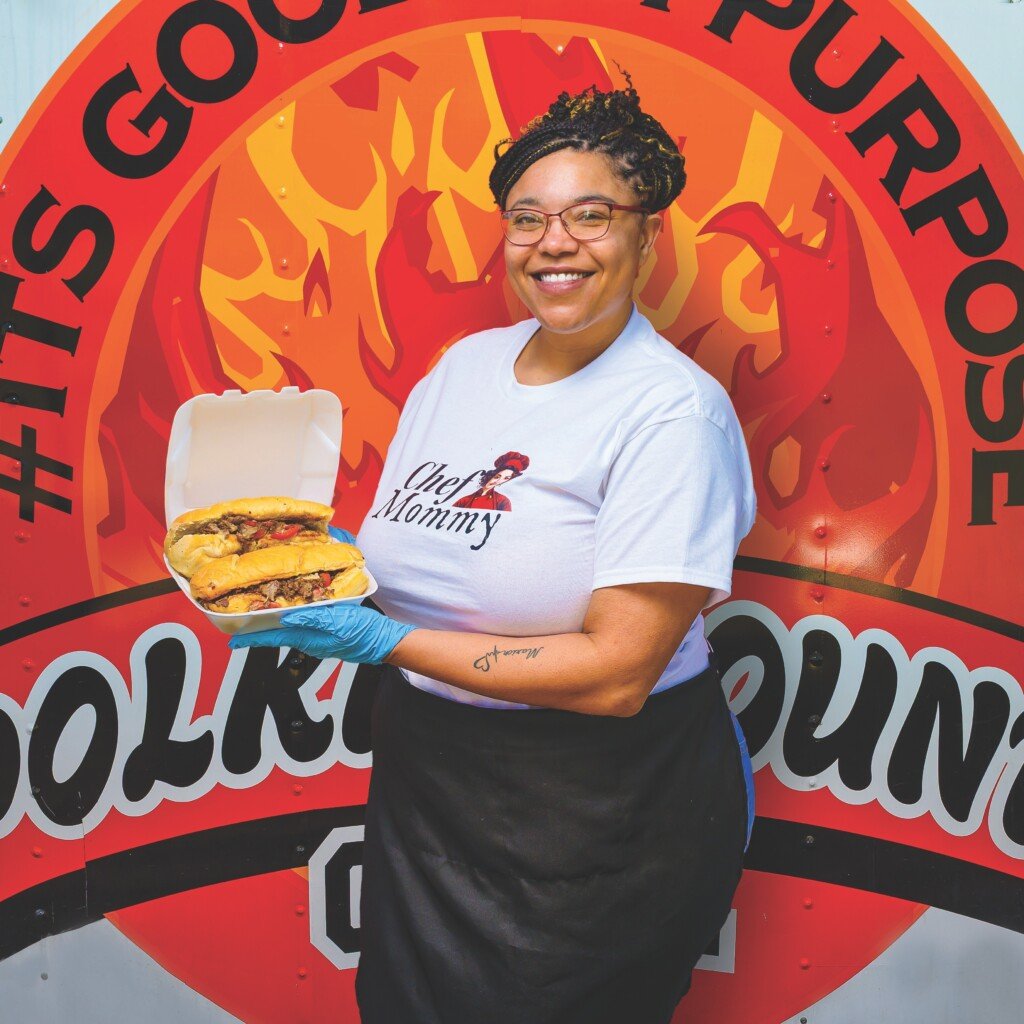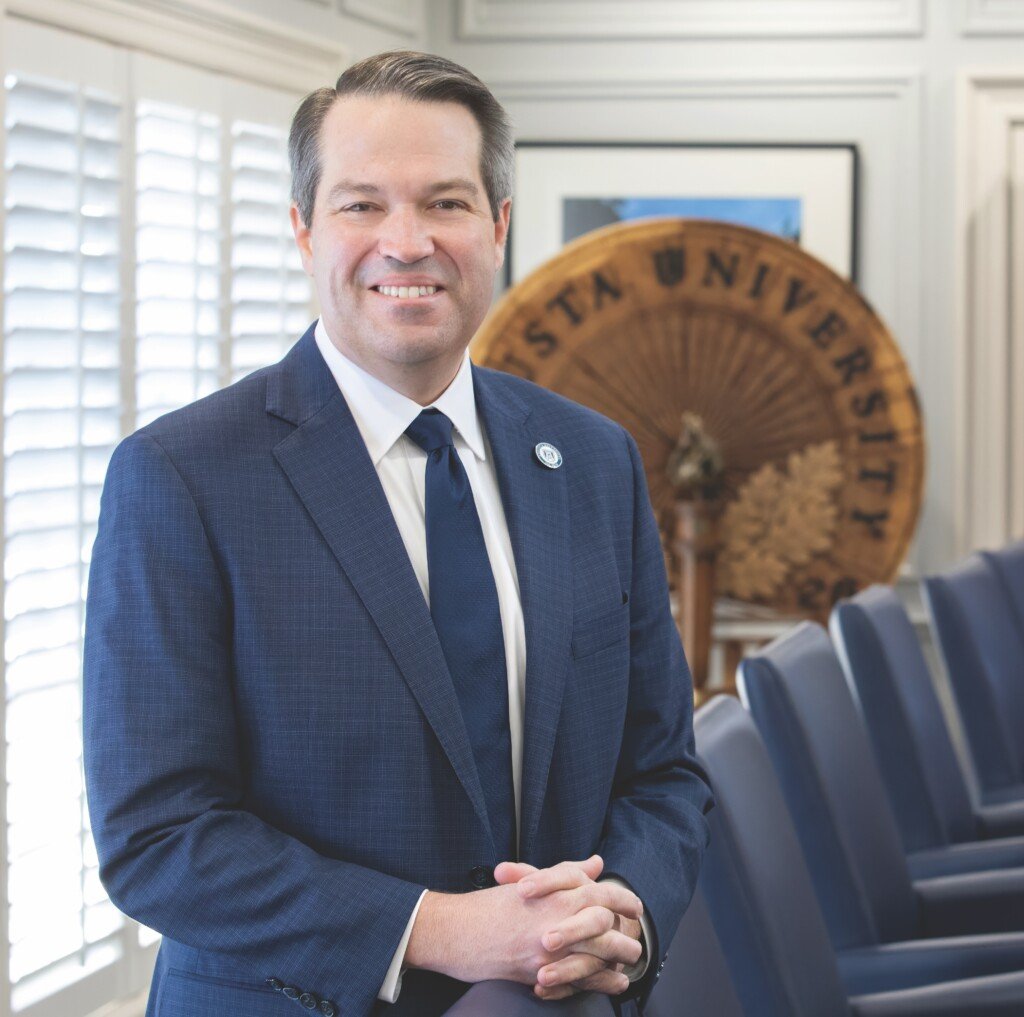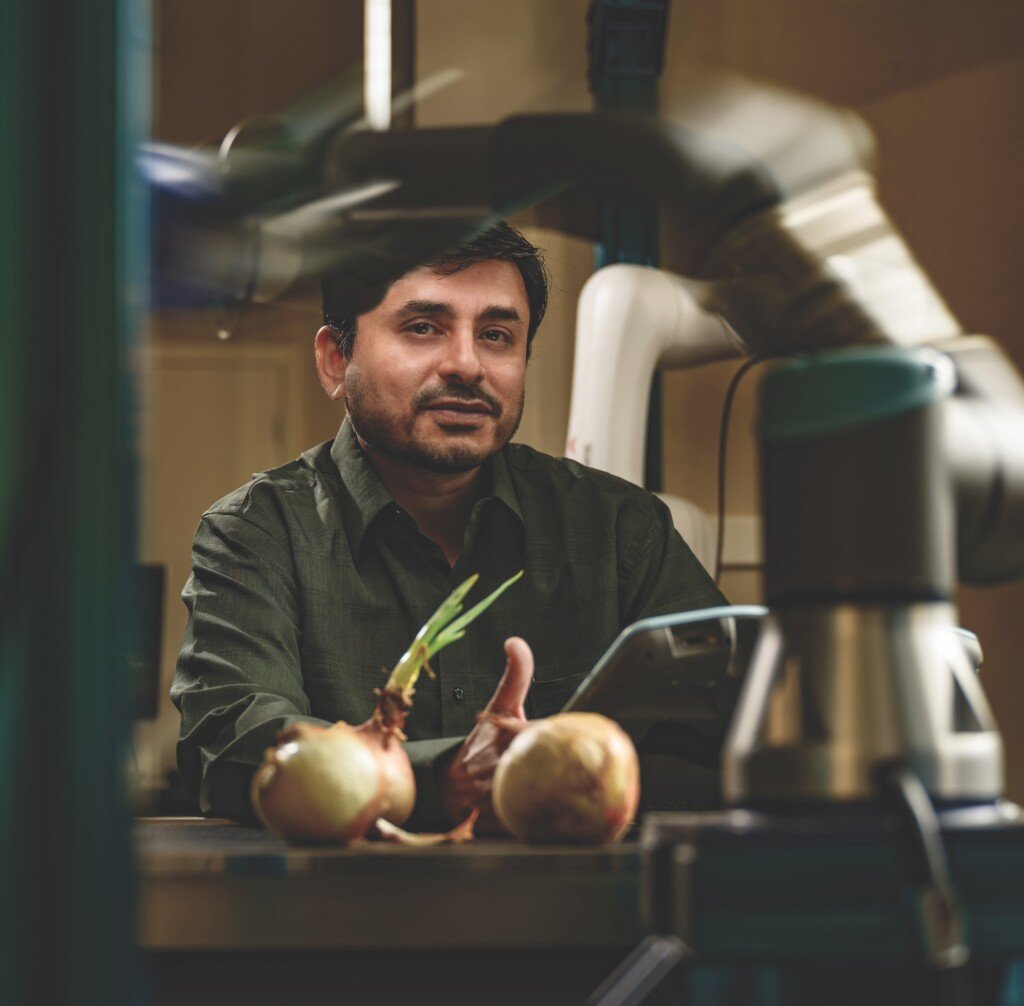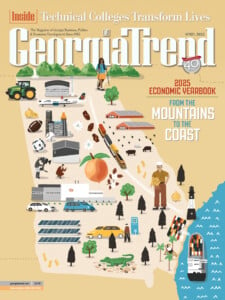Transforming Lives: How the Technical College System of Georgia Helps Students Succeed
TCSG assists students by offering apprenticeships, dual enrollment and workforce support and training programs.
The data doesn’t lie. It was another banner year for the Technical College System of Georgia (TCSG). In 2024, the system – comprising 22 technical colleges and 88 campuses in every corner of the state – hit 148,746 in total credit enrollment, a 10.6% increase in total credit hours taken by students from 2023.
 “This is the highest enrollment we’ve had since 2013, which was when you saw enrollment start declining after the Great Recession,” says Greg Dozier, TCSG commissioner.
“This is the highest enrollment we’ve had since 2013, which was when you saw enrollment start declining after the Great Recession,” says Greg Dozier, TCSG commissioner.
He cites multiple reasons for the surge in growth. Solid strategic planning by college presidents during the pandemic, especially related to student outreach, reached their intended audience through the media and a new customer relationship management (CRM) platform that helps students navigate application and retention processes. The message is simple and direct: Come to TCSG and land a well-paying job straight out of your technical college program with opportunities in the future.
However, TCSG growth also has to do with the types of jobs Georgia attracts.
“When you see companies like Hyundai and Archer Aviation and some of the exciting companies that you hear about, I think young people want to know how they can become part of those entities,” says Dozier. “Thankfully, the jobs [those companies] offer are looking for people with the skills we train on.”
Training Workers of the Future
Yet another 2024 data point demonstrates the system’s commitment to providing students with what they need to achieve their goals.
“During the Great Recession, we got up to 170,000 to 180,000 students, but we didn’t graduate folks like we are now,” Dozier says. “[In 2024], we had 40,451 graduates – the highest in TCSG history. We’re making sure our students make it to the finish line.”

Planning for the Future: Greg Dozier, commissioner of the Technical College System of Georgia. Photo credit: Ben Rollins
Last year, TCSG boasted a 99% placement rate, which measures the percentage of students who graduated and either continued their education or entered the workforce. That rate was the highest ever. TCSG also had a 92% in-field placement rate, indicating students found work within their field of study.
“What these numbers tell us is that our counselors and professors are connecting [students] to the jobs of the future,” Dozier says.
Many of those jobs of the future are in what Georgia dubs “high-demand careers” in fields like aviation, nursing and advanced manufacturing. In December 2024, the State Workforce Development Board, a division of TCSG, approved a Unified High Demand Career List, a tool designed to align education, training and workforce development efforts with employers and industry partners statewide.
Gov. Brian Kemp established the High Demand Career List (HDCL) under House Bill 982 to provide stakeholders with a centralized roadmap of current and future workforce needs. There are actually two lists: one statewide list offering a broad perspective of key occupations in Georgia, and regional lists providing deeper glimpses into local industry and employment trends.
The lists are developed using five data-driven criteria: positive projected growth, annual job openings, wages, credential attainment and public service/good. Not only does this tool assist educators, economic developers and industry in aligning programmatically, but it also helps legislators and the TCSG when it’s time to consider funding.
“If we’re going to fund additional apprenticeships, it’s a way to help us identify what industries and areas should qualify for that state funding,” Dozier says. “[The lists] will consolidate [career areas] and give us and our appropriators a guidance tool for when they appropriate monies.”
“When you see companies like Hyundai and Archer Aviation and some of the exciting companies that you hear about, I think young people want to know how they can become part of those entities. Thankfully, the jobs [those companies] offer are looking for people with the skills we train on.” Greg Dozier, commissioner, Technical College System of Georgia
More than 800 aerospace companies call Georgia home, and they’re located throughout the state. Aerospace manufacturing is the state’s second-largest manufacturing industry, requiring a skilled workforce. Industry partners, including Delta Air Lines, Embraer, Gulfstream, Lockheed Martin, Pratt & Whitney and Qarbon Aerospace, rely on workers training in courses from aviation maintenance technology to aircraft structural technology. The training is available at multiple technical colleges, typically close to industry partners, where students can find apprenticeships, work-study programs and jobs after graduating.
Robust aviation programs exist at Central Georgia Technical College (CGTC) in Warner Robins, South Georgia Technical College in Americus and Savannah Technical College’s Aviation Training Center. In 2024, Chattahoochee Technical College opened a 55,000-square-foot Aviation Training Academy at the Paulding Northwest Atlanta Airport in Paulding County. Students can pursue a diploma in aircraft structural technology (structures) or technical certifications in aircraft upholstery and trim and avionics bench technician.
According to Alan Biercewicz, aviation program director at Chattahoochee Tech, aviation offerings are popular with students at every level.
“The majority of students are coming to us directly from high school in our structures and avionics programs,” he said in an email. “But in the Lockheed program [an industry partner], we are seeing an even mix of students from schools and others re-skilling from other careers.”
Biercewicz said the program has already graduated two cohorts of students, one in avionics and one in structures.

High-Demand Jobs: A student gets hands-on experience at Savannah Technical College’s Aviation Training Center, above top; La’Quata Sumter, an instructor for the Electrical and Computer Engineering Program at Albany Technical College, teaches about drones, above.
“Most, if not all, of those students in both those programs were using it as a placeholder for our aviation maintenance program [airframe and powerplant], which we have not started yet because we are not yet certified by the FAA,” he said.
At Albany Technical College, students can earn a certificate in unmanned aerial systems technology, which provides basic skills in how to repair and operate drones. La’Quata Sumter, an instructor for the Electrical and Computer Engineering Program, says students who earn the technical certificate have some interesting career options. Among other things, “they’re able to either start their own drone company or … join a drone task force,” she says.
And once they get a Part 107 license, which is issued by the Federal Aviation Administration, they can do basic drone operations in several fields. “[That] would include search and rescue, photography and videography, working for the news stations as well as construction companies or media teams,” Sumter says.
An All-of-the-Above Approach
Regarding apprenticeships, 2024 marked the highest number of High-Demand Apprenticeship Program awardees, 188. The Georgia legislature provided $1.1 million to help companies fund some of the mentorship and operational costs correlated with approved apprenticeships, which run the gamut from healthcare and construction to advanced manufacturing. Since its inception in 2021, the program has helped more than 65 Georgia businesses create over 250 apprenticeships.

Facilitating Apprenticeships: Mike Pace, Central Georgia Technical College’s dean of aerospace, trade and industry, at the Georgia Veteran Education Career Transition Resource Center in Warner Robins. Photo credit: Kevin Garrett
“We’re in a place now where the demand for a skilled workforce is such that organizations are taking an all-of-the-above approach to [finding workers],” says Mike Pace, dean of Aerospace, Trade and Industry at CGTC, with additional campuses in Macon and Milledgeville. “We’ve had a growing interest in apprenticeships across program areas.”
Apprenticeships are a win both for students and companies. Students get the instruction, training and mentorship they need, along with paid real-life work experience, and the employer gets the benefit of an employee trained on their specific job need. The state and TCSG offer as much support as wanted.
“We’re a registered apprenticeship sponsor, so if they opt to, we can offer the company a fully registered U.S. Department of Labor apprenticeship,” Pace says. “We can facilitate all of the paperwork and reporting. We pitch [registered apprenticeships] to our companies so they can have a non-intrusive, non-burdensome approach to helping them create an apprenticeship.”
Popular Programs
Pace administers some of the college’s most in-demand programs, including aircraft structural technology, automotive technology, electronics and engineering technology, commercial truck driving and welding. Last year, Central Georgia Tech added AI-enhanced robotic manufacturing specialist training. The course, which was created in partnership with 21st Century Partnership and Georgia Tech’s Georgia Artificial Intelligence in Manufacturing (GA-AIM) Coalition, trains students to enter a manufacturing environment with a high degree of automation and robotics.
“We have an Associate of Science in Nursing and a Licensed Practical Nursing program. Nursing is the hot-button, top program.” Janet Kelly, associate vice president of enrollment services, marketing and public relations, Central Georgia Technical College
“Regardless of the product they manufacture, the program has applicability,” says Pace. “It’s a series of classes that teach the basics of AI in a manufacturing environment and the principles of things like programmable logic controllers, machine vision and cyber-physical systems. It’s a good introduction to how these automation elements are programmed, how they interface and how they are used in a manufacturing environment.”
However, trade and engineering aren’t the only high-demand programs at Central Georgia. Health sciences continue to dominate enrollment, and a new transfer agreement with Mercer University could enhance it even further.
“We have an Associate of Science in Nursing and a Licensed Practical Nursing program,” says Janet Kelly, associate vice president of enrollment services, marketing and public relations. “Nursing is the hot-button, top program.”
An agreement between Mercer University and TCSG created a new career pathway for Central Georgia Tech students who want to further their medical education. The agreement maps out transfer equivalencies to Mercer’s health science programs from TCSG institutions, removing redundancies and maximizing students’ earned credits. Programs include a healthcare leadership track, a bachelor of science in nursing and a pathway for students to enter Mercer’s doctor of pharmacy or pre-med programs.
“This transfer agreement is set up so [Mercer] will accept over 60 hours of our credits and use them toward a student’s four-year degree at Mercer,” Kelly says. “It helps speed up the timeline. They start as juniors.”

Career-Oriented Course: A Central Georgia Tech student in the school’s AI-enhanced robotic manufacturing specialist training program. Photo credit: contributed
The transfer agreement with Mercer is good for any technical college, though the proximity of Central Georgia Tech makes it a great fit for its health sciences students. Mercer officials agree.
“One of the comments I heard in conversation from a Mercer leader was that the transfer students from Central Georgia have been well-prepared, regardless of the program area,” Kelly says.
Successful Strategy
The success of dual enrollment plays a part in TCSG’s popularity, with 40,646 students enrolled in the program in 2024. Dual enrollment allows high school students to take college classes, usually at a high school, local college and career academy or nearby technical college, where they can earn college credits or begin earning workplace certifications.
In 2024, CGTC had 6,028 dual enrollment students, the highest number in the technical college system. Even better? The college converted 16.2% of those students into full-time enrollment students after graduating high school.
Administrators at the college and in surrounding school systems in Houston, Bibb, Jones, Monroe and Putnam counties consider dual enrollment an integral and accessible part of the regional workforce development strategy.
“By bringing those college courses into the high school, [administrators] have made it available to every student – meaning [students] don’t have to figure out a way to overcome transportation challenges,” Kelly says. “Not only has it allowed every student in [these counties] to have this equal opportunity toward getting college credits, but it’s allowed dual enrollment at Central Georgia to grow exponentially.”
Savannah’s Culinary Gem
Savannah Technical College, with campuses in Savannah and Effingham and Liberty counties, experienced significant growth in programs and enrollment in 2024 – up 14.2% over the previous fall semester. But the biggest news by far was the recent opening of the renovated four-story building at 7 West Bay Street in downtown Savannah across from City Hall. The building is home to the Savannah Culinary Institute, complete with classrooms, a demonstration kitchen, a 74-seat restaurant and bistro retail counter, a bakery with seating for 16 and more. The college intends to offer public dining and classes eventually.

Top Chef: Chef Geary Caudill, head of the culinary arts department of Savannah Technical College, works with a student. Photo credit: Savannah Culinary Institute
“There are two main purposes for the [culinary arts] building,” says Robert Grant, Savannah Tech vice president for community and college relations. “No. 1 is educating students and creating the workforce, but the second part is the economic development side. The chamber of commerce told us that there’s 1 million a year in foot traffic on our sidewalk. In many ways, this [building] is a Super Bowl commercial for us.”
The $13 million capital expansion increases culinary arts instructional space from 3,000 square feet to 14,000 square feet, allowing the cohort size to double from 150 to up to 300 students while keeping student costs affordable.
“For our students, they’re probably in and out of the school for the entire two-year program for roughly $8,000,” says Chef Gearry Caudell, culinary arts department head. “At a private institution, you’re going to spend, at minimum, $40,000.”
The entire project was facilitated by the STC Foundation, which secured the original loan needed to purchase the building and then raised $4 million to renovate, equip and furnish the building as part of its capital campaign.
“Those folks stepping up to the plate and making the initial investment ignited the spark to make people realize and open their eyes to the possibilities of this institute,” says Ryan Foley, president of Savannah Tech. “[It’s] more than just a building; it is an investment in our community. It’s not only going to train the next generation of culinary professionals but also contribute to the continued growth of the Savannah scene in hospitality and tourism.”
In January, Savannah Tech started its long-anticipated associate of science in nursing program, which it hopes will address the region’s nursing shortage. The program takes place at the Effingham campus and began with a cohort of 24 students. Students take classes four days a week for four semesters and finish the program with clinical rotations.

Fired Up: Chef Geary Caudill, head of the culinary arts department of Savannah Technical College, far left, with students at the opening of the school’s Savannah Culinary Institute. Photo credit: Savannah Culinary Institute
“At the end of it, they’ll be prepared to sit for the national council licensure exam for registered nurses [NCLEX-RN] and be hired as RNs across the region,” says Foley. “Just like those who go through a four-year program.”
Attaining a Goal, Building a Life
Career and technical education relies on partnerships with the state and local government, but economic and workforce development professionals, educational partners, nonprofits, businesses and industries also contribute to the education ecosystem. To truly know if it’s all working, it helps to hear from the students themselves.
Kayla Crabbe received her associate degree in culinary arts in December 2024 from Georgia Northwestern Technical College in Rome with a dream of operating a food truck. A single mother of four, Crabbe calls cooking and serving food her “love language.” Despite managing a busy family, school and all that entails, Crabbe finished the two-year culinary arts program in just under two years.

New Program: Students at Savannah Technical College’s new associate of science in nursing program take classes four days a week for four semesters and finish the program with clinical rotations. Photo credit: Savanah Technical College
It was far from easy, but several factors contributed to Crabbe’s ability to complete her degree on time. Her instructors – Chef Greg Paulson and Chef Anna Ray – genuinely cared about what was going on in her life in and out of the classroom. The Georgia Northwestern Tech financial aid office stepped in to help find the financial support she needed. Crabbe qualified for the federal Pell Grant, which provides need-based financial aid for post-secondary education. She also qualified for the Workforce Innovation and Opportunity Act program (WIOA), a federally funded work training program offering financial assistance for fees, supplies or other program materials and childcare expenses.
Crabbe also sought personal development by joining SkillsUSA, a national student-led workforce development organization that offered a new level of leadership opportunities.
“I was president of our chapter for the fall semester,” she says. “Being in Skills-USA on top of the WIOA [program] changed my life tremendously. I’ve been to cooking competitions. I’ve been to leadership conferences. I’ve met people I would not have met had I not chosen this lifestyle.”
Crabbe competed in the culinary arts category at the SkillsUSA Georgia State Leadership and Skills Conference in February 2024, and though she had already graduated, she represented GNTC again at the challenge in February 2025, demonstrating the skills she learned in the program by preparing a multi-course meal in three hours. Crabbe describes the competition as nerve-wracking but life-changing.
“That’s why I’m so, so stuck on SkillsUSA,” she says. “I want to recruit as many people as possible because I want somebody else to have the same experience.”
As for Crabbe’s goal of operating a food truck? In October 2024, she had the opportunity to purchase a truck. Her business is called Chef Mommy and features fusion cuisine. Entrepreneurship has its ups and downs, but Crabbe is thrilled to be where she is today, building a business she hopes to share with her family and showing her children that they can achieve their goals, too.
“I had butterflies before I could walk across that stage [to accept the degree],” she says. “It was happy butterflies, not nervous ones. [I said] you did it.”
TCSG: Did You Know?
- TCSG boasts some of the top-ranked career and technical colleges in the nation according to the Military Times Best for Vets 2024 rankings.
- TCSG offers more than 600 study programs that can be accessed either in person or online.
- Georgia residents aged 62 or older can apply for a tuition waiver and attend any technical college tuition-free. Student fees and some program costs will still apply.








